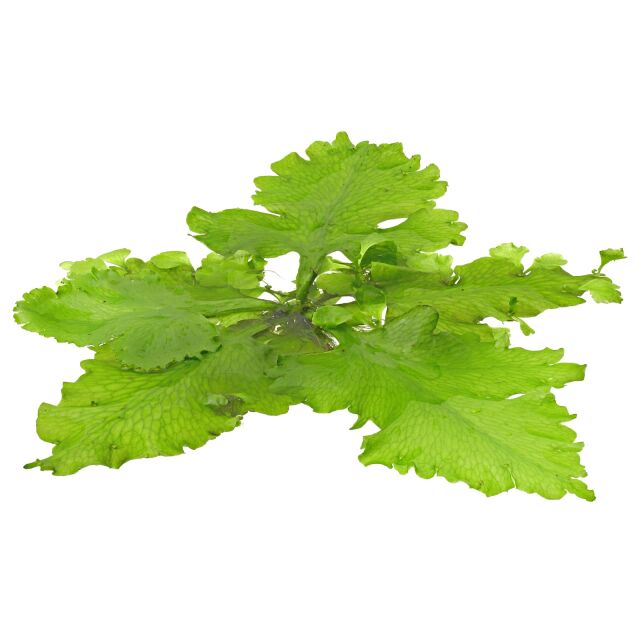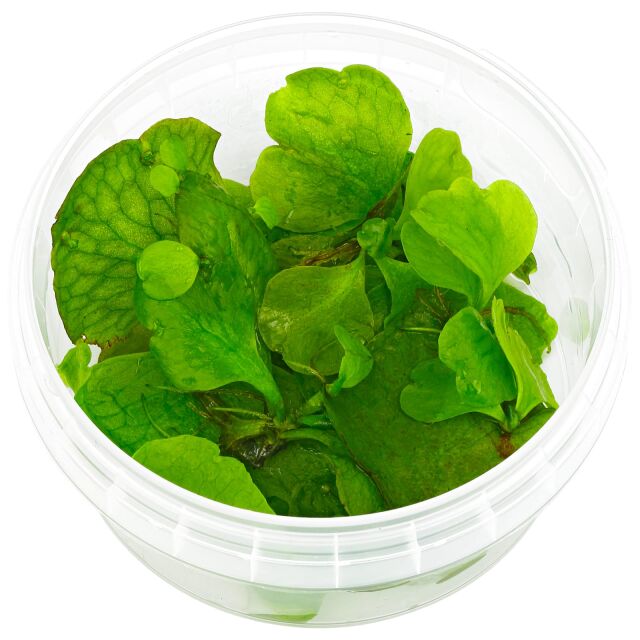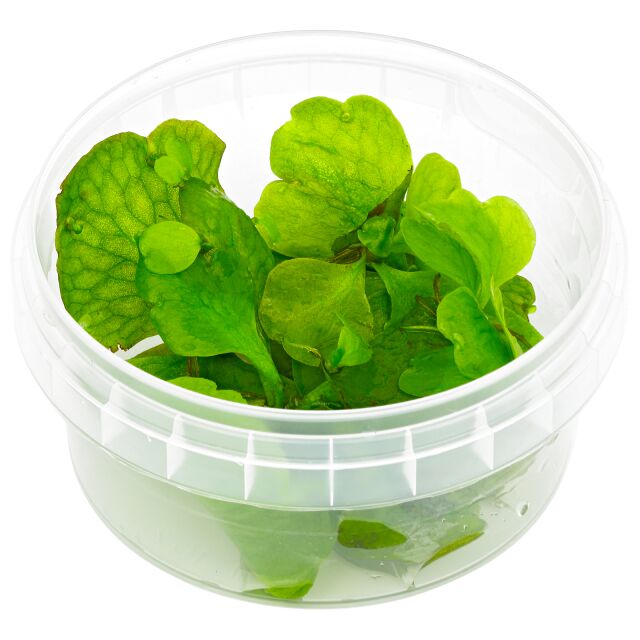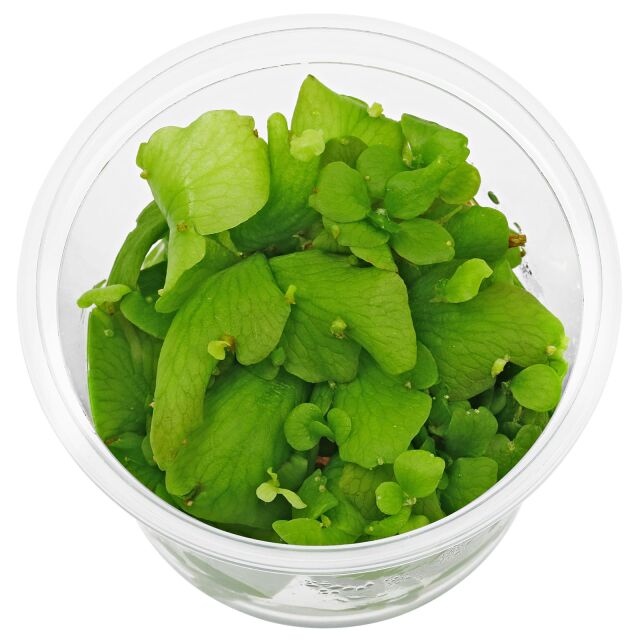Floating antler-fern





Ceratopteris pteridoides
Floating antler-fern
- Large floating plant
- Bushy water roots
- Can also be grown as swamp plant
Item question
We’re here for you!
Please enter your question and e-mail and we’ll contact you as soon as possible. It usually takes us up to 24 hours during business days to respond.
Thank you for your question!
Thank you, we’ll get in touch!
Close window
You already sent us a question.
Please wait a few minutes
Description
The Floating antler-fern is very different from its relatives Ceratopteris thalictroides and C. pteridoides. This conspicuous, large floating fern occurs from the southeastern U.S. to South America and is also reported from Southeast Asia. Ceratopteris pteridoides grows in rivers and standing waters, either free-floating with water roots or as swamp plant, rooting in mud. It does not thrive under water. In the aquarium hobby this species is often confused with Ceratopteris cornuta that is able to grow submerged.
The triangular to lobed floating leaves may exceed 13 cm in length. With much light and nutrients, this fern may develop its very different fertile, spore-bearing leaves that are emersed, finely divided and have a very thick, inflated stalk. Many young plantlets (adventitious plantlets) form on older floating leaves.
As a floating aquarium plant, Ceratopteris pteridoides needs above all a plentiful nutrient supply and good lighting. The favourable temperatures lie between about 18 and 30 °C. Nutrient deficiency or imbalance may lead to pale new leaves and poor growth. Under favourable conditions this fern may get large within a quite short period. If the leaf rosettes have become too large for the tank, they can be replaced by some of the many young plantlets that develop on old, also detached leaves.
Young plants from tissue culture are often entangled and not easy to separate from each other. However the latter is actually not necessary. After rinsing off the tissue culture gel, they can be put on the water surface as whole clumps of several plants and separated later, if desired. The leaves broke off easily but may develop adventitious plantlets when they are left floating.
This large, decorative water sprite species looks best in open tanks. It provides shelter for the aquarium inhabitants and is well accepted by labyrinth fishes for their foam nests. Ceratopteris pteridoides is also interesting for South America-themed biotope aquariums, together with other floating plants from this region such as Phyllanthus fluitans, Azolla and Salvinia species.
Floating antlerfern, or Ceratopteris pteridoides, is distrubuted from the American subtropicst and tropics from Florida and Louisiana on southward and has also been found in Vietnam.
It does not grow submersed, but only floating on water and as bog plant on muddy ground. Form and size vary, depending on the conditions of the location it grows in.
The floating leaves of young plants are entire, those of older, larger plants have broad lobes. Their outline is a wide triangle. On older leaves, many young plants form from bulblets in the deep crevices of the lobes.
The leaf stalks are thick and widen even more towards the leaf blade; they consist of spongiform tissue and serve as buoys. (The leaf stalks of Ceratopteris cornuta and C. thalictroides, however, are relatively thin and of an even width.) The leaf lobes of C. pteridoides are mostly oppsite, whereas those of C. (read more)
| Synonyms | Parkeria pteridoides Hooker, Ceratopteris lockhartii (Hook. & Grev.) Kunze |
| Misapplied names | Ceratopteris cornuta, Ceratopteris froesii |
| Complete botanical name | Ceratópteris pteridoídes (Hooker) Hieronymus |
| Family | Pteridaceae |
| Genus | Ceratopteris |
| Difficulty | medium |
| Usage | Plant for spawning, Water surface |
| Growth | very fast |
| pH value | 5 - 8 |
| Temperature tolerance | 18 - 30°C |
| Carbonate hardness | 0 - 21°dKH |
| General hardness | 0 - 30°dGH |
| Propagation | Proliferating leaves, Spores |
| Can grow emersed? | yes |
| Source | Flowgrow |
| Synonyms |
| Parkeria pteridoides Hooker, Ceratopteris lockhartii (Hook. & Grev.) Kunze |
| Misapplied names |
| Ceratopteris cornuta, Ceratopteris froesii |
| Complete botanical name |
| Ceratópteris pteridoídes (Hooker) Hieronymus |
| Family |
| Pteridaceae |
| Genus |
| Ceratopteris |
| Difficulty |
| medium |
| Usage |
| Plant for spawning, Water surface |
| Growth |
| very fast |
| pH value |
| 5 - 8 |
| Temperature tolerance |
| 18 - 30°C |
| Carbonate hardness |
| 0 - 21°dKH |
| General hardness |
| 0 - 30°dGH |
| Propagation |
| Proliferating leaves, Spores |
| Can grow emersed? |
| yes |
| Source |
| Flowgrow |
General information
Please choose a variant to see more information.
| Item no. |
|
| EAN | |
| Weight | |
| Shipping weight |
Customers ask customers
You have questions about this product? Ask other customer or our support team about this product!